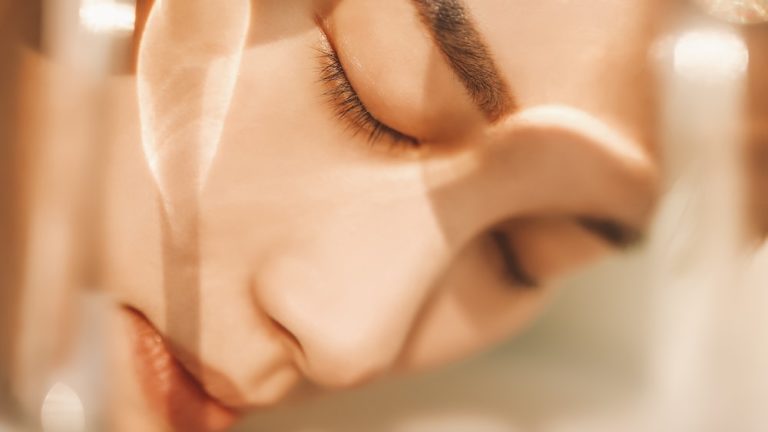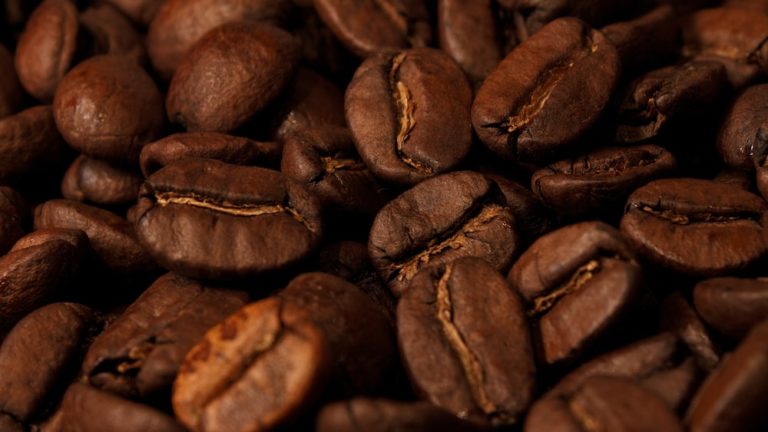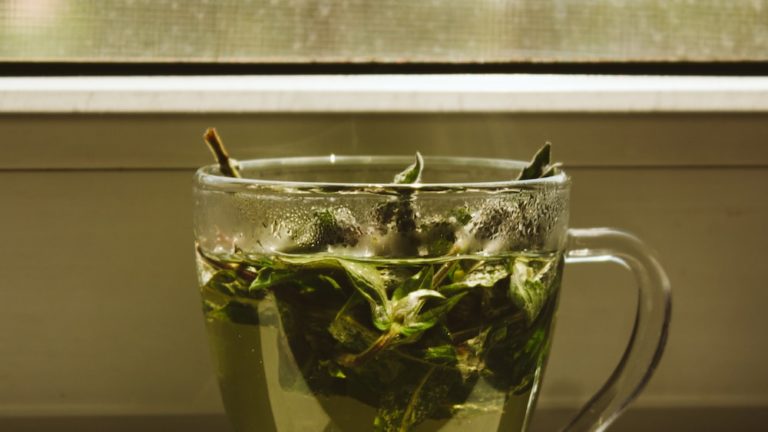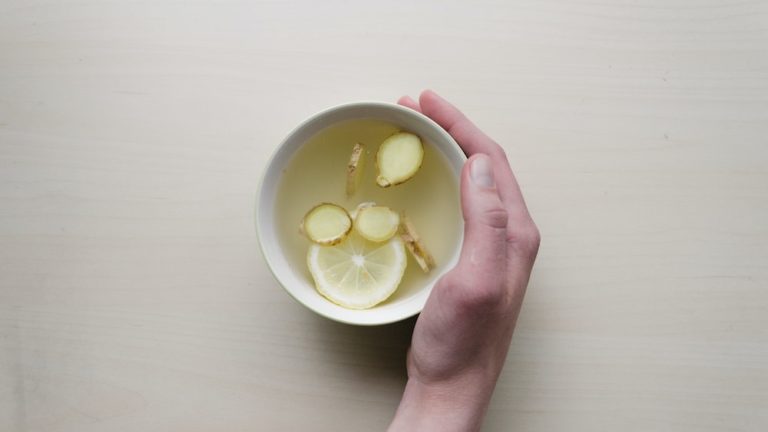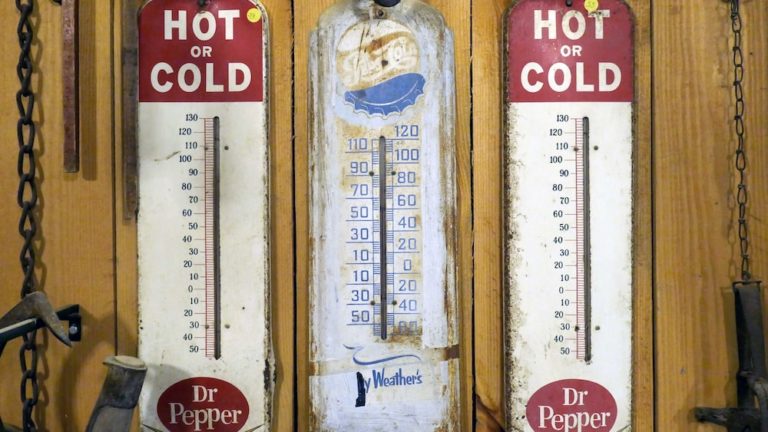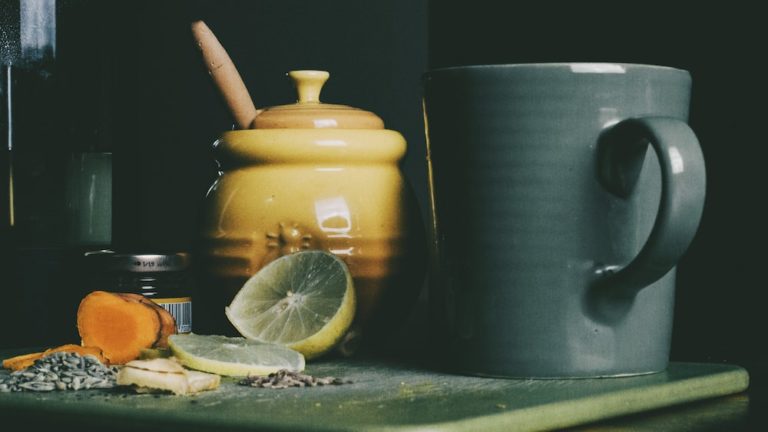Does Hibiscus Tea Have Caffeine? Exploring The Truth
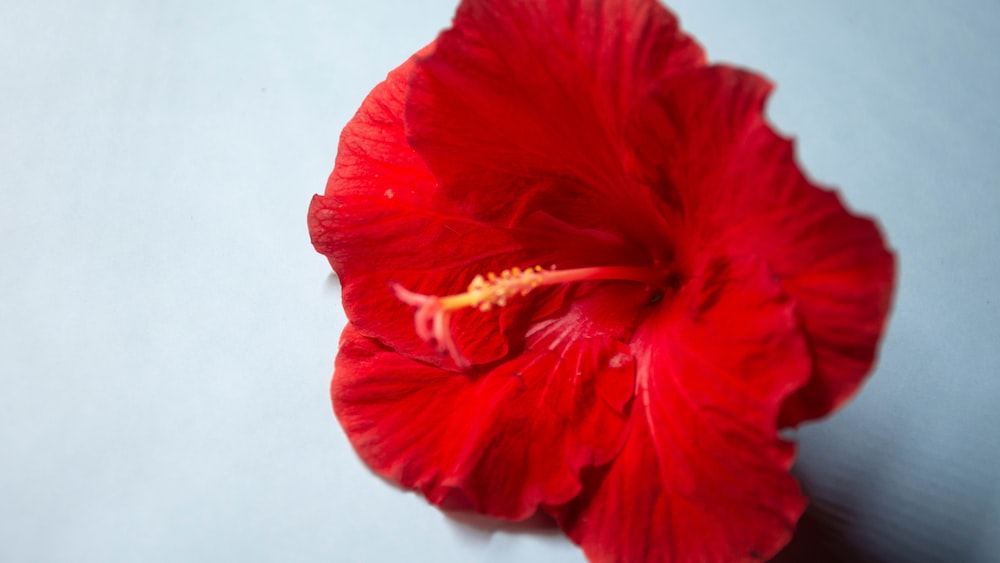
Does Hibiscus Tea Have Caffeine? Exploring The Truth
Hey there tea-lover! Have you ever wondered if your hibiscus tea contains any caffeine? Well, you’ve turned the right page, or rather clicked the right link! With a vibrant red hue like a setting sun and a tart flavor that rivals the sassiest of lemons, hibiscus tea is widely loved for both its taste and potential health benefits.
But, does it include an extra ‘kick’ for your morning routine? Will it whistle you awake like a powerful freight train or might it bring you the peace akin to dozing off in a hammock on a breezy summer afternoon? Hmm…what do you think?
Let’s delve into the colorful, and dare I say, mysterious world of hibiscus tea.
Understanding Hibiscus Tea
Before we spill the beans, or rather the tea leaves, let’s first understand what makes hibiscus tea the much-adored beverage it is today. Are you ready for a crash course in hibiscus teaology? Buckle up!
What is Hibiscus Tea?
First off, what is this fiery red beverage? Hibiscus tea – yes, you guessed it, is a herbal tea made from the infusion of crimson or deep magenta-colored calyces (sepals) of the Hibiscus sabdariffa flower. Sweet or tart in taste, it unfurls an enchanting floral aroma that can mask the noisiest of city streets with a countryside serenity.
Traditional and age-old wisdom suggest hibiscus tea not just as a refreshing beverage, but also a tonic with numerous health benefits. Be it a rustic, ancestral kitchen or a state-of-the-art lifestyle spa, this herbal tea claims its presence with a tantalizing panache.
Whether enjoyed hot as a comforting winter brew or cold as a thirst-quenching summer iced tea, its appeal is universal.
Hibiscus tea is a herbal beverage with a refreshing taste and numerous health benefits, enjoyed both hot and cold.
The Origin and Popularity of Hibiscus Tea
The hibiscus flower, with its alluring crimson charm, sprung from the fertile soils of Africa. History suggests the pharaohs of ancient Egypt savored Hibiscus tea to keep cool in the blistering desert heat.
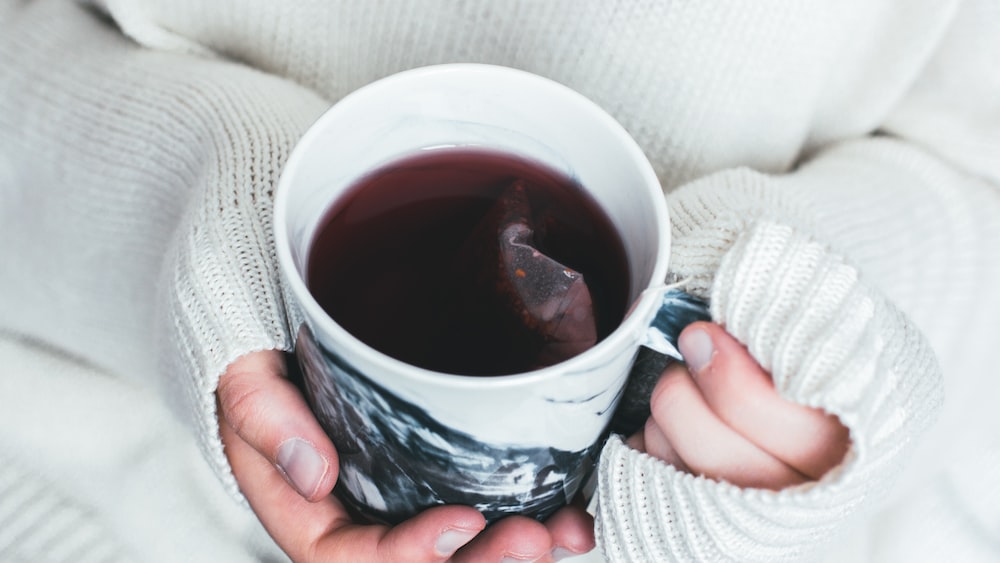
Today, it’s appreciated worldwide, from Korea to Mexico, each with its unique twist in brewing this herbal delight. Hibiscus tea, the international phenomenon? Absolutely!
Nutritional Profile of Hibiscus Tea
Let’s strip down this floral beauty and take a peek at what lies within (it’s not as scandalous as it sounds, I promise!). The nutritional profile of hibiscus tea contains a few surprises that could intrigue even the most accomplished tea connoisseurs.
Nutrients and Calories in Hibiscus Tea
Sip by sip, each cup of hibiscus tea offers unique nutrients that would make Popeye ditch his spinach. Picture your eyes widening and your brows raising in amazement: A cup of brewed hibiscus tea provides not just hydration but also a smorgasbord of vital nutrients:
- Vitamin C
- Iron
- Magnesium
- Phosphorus
- Calcium
- Niacin
- Folate
Guess what? This royal pantone colored tea is practically calorie-free – an added bonus for the vigilant calorie counters among us. How’s that for a plot twist!
Antioxidant Properties of Hibiscus Tea
With sacrilegious levels of antioxidants, hibiscus tea is like the night’s watch safeguarding your body from harmful free radicals. It owes its rich, purplish-red color to anthocyanins- potent antioxidants that play quite the superhero in your body, fighting off the ‘bad guys’ that threaten your health.
But don’t just take my word for it. Studies vouch for its antioxidant prowess, with one study stating that hibiscus tea showed higher antioxidant activity than green tea! Now, there’s a titbit you can casually drop at your next gathering.
Caffeine Content in Hibiscus Tea
Here comes the big reveal! The moment we’ve been brewing over, the grand disclosure about the caffeine content in hibiscus tea. Drumroll, please…
Comparing Hibiscus Tea Caffeine Levels with Other Teas
Let’s size up our hibiscus tea next to its popular counterparts:
| Type of Tea | Average Caffeine Content |
|---|---|
| Black Tea | 50mg |
| Green Tea | 30mg |
| White Tea | 20mg |
| Oolong Tea | 45mg |
| Herbal Tea (Varies according to the herb used) | Low to None |
| Hibiscus Tea | 0mg |
Yes, we’ve successfully arrived at the juncture where we answer the most sought-after question about hibiscus tea. Buckle up, folks! You’re in for a delightful tea-twist.
The Truth About Caffeine in Hibiscus Tea
Now let’s spill the tea, so to speak! Does hibiscus tea have any caffeine? We all love a good caffeine kick now and then, don’t we? But, would you believe it if I told you that this enchantingly red and delightfully tangy beverage has zero, zilch, nada, no caffeine? That’s right, despite being a wonderful wake-me-upper, hibiscus tea does not possess the conventional caffeine atribute found typically in other teas. It’s like a decaf superhero in disguise!
This absence of caffeine makes hibiscus tea a fantastic alternative, especially if you’re trying to cut down on caffeine but still yearn for a flavor-packed drink. Isn’t it splendid that you can enjoy a caffeine-free relaxing drink without sacrificing the joy of taste?
Health Benefits of Hibiscus Tea
Hibiscus tea truly is a versatile beverage and its benefits extend beyond being a caffeine-free choice. Now don’t be fooled! Though it might taste heavenly, its asset list is equally down to earth and very beneficial to our health! Are you ready to dive into the pool of hibiscus tea health benefits? Let’s cannonball right in!

How Hibiscus Tea Benefits Blood Pressure
Blood pressure got you quivering like a leaf in the wind? Hibiscus tea might just be your anchor. According to a well-regarded study conducted by Tufts University, the regular consumption of hibiscus tea has been found to lower systolic blood pressure significantly.
Further, the compounds found in this ravishingly rosy plant can aid in the dilation of blood vessels. This increases the water flow, metaphorically allowing your bloodstream to feel like it’s tubing down a spacious river rather than squishing through a narrow creek.
The results of another study published in The Journal of Nutrition hinted that the impact was even larger in people suffering from higher blood pressure levels. This makes hibiscus tea not only the belle of the ball, but also the hero of the health gala.
Regular consumption of hibiscus tea has been found to significantly lower systolic blood pressure and aid in the dilation of blood vessels, making it a hero in the battle against high blood pressure.
Hibiscus Tea and Cholesterol Levels
Feeling like you’re navigating the rocky sea of cholesterol levels? Let hibiscus tea be your sailing buddy! Preliminary studies have shown that the consumption of this radiant red tea might play a role in lowering LDL or “bad” cholesterol levels.
On top of that, it might boost the HDL, or the “good” cholesterol. This is like winning health’s two-sided lottery! Not every day do you find a drink that can both lower the villain and elevate the hero in your cholesterol drama, do you?
Perhaps this is why this tea found its place in traditional medicine. It’s like a classic comic book hero – always there to save the day!
Weight Loss and Hibiscus Tea
Yes, you read that right. Weight loss! Could hibiscus tea be your next gym buddy? Now, don’t get me wrong, it doesn’t have magical weight-losing powers. It is, however, a natural diuretic and we all know that can be helpful in weight management.
It also shows promise in inhibiting the body’s absorption of starch and sucrose, which could further help in weight loss. If this doesn’t make hibiscus tea the new supermodel on the health and wellness catwalk, I don’t know what does!
Other Potential Health Benefits of Hibiscus Tea
If you’re thinking that the health benefits of hibiscus tea stop here, well think again folks! This red-elixir of health is a factory of health benefits. In traditional medicine, it was often used to aid digestion and improve the health of your liver.
In modern times, research has suggested improvements in menstrual symptoms, depression and even certain cancers. More research is needed to understand these benefits fully but the point is clear – hibiscus tea’s potential health benefits could fill a book!
How to Brew Hibiscus Tea Properly
To enjoy the maximum benefits and flavor of Hibiscus tea, one must learn the art of brewing it properly. So, ready to master the art? Put on your barista apron, as we are about to unveil the top-secret brewing technique!
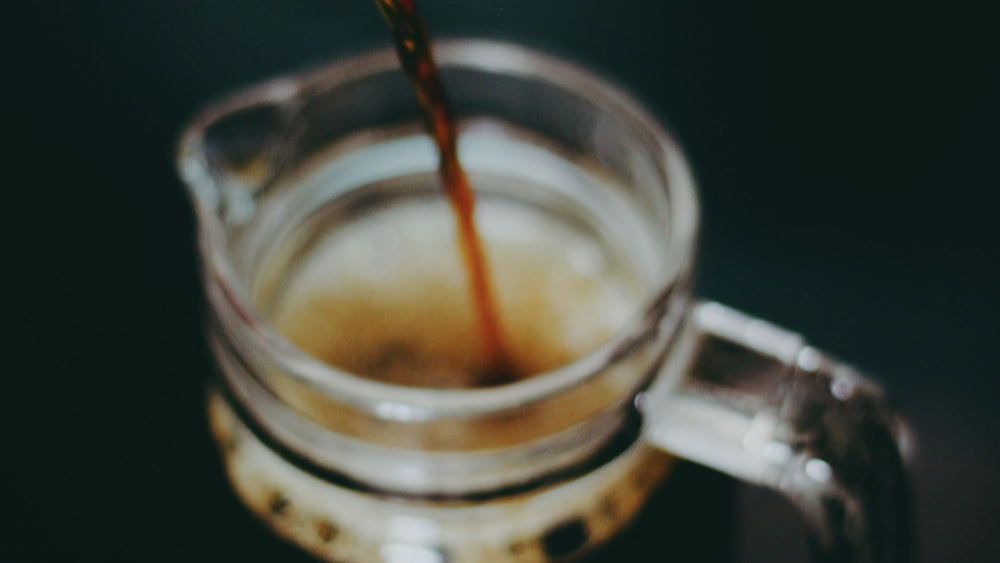
Step-by-Step Brewing Instructions
- Heat the Water: Start by simmering water. Aim for just below boiling – around 208°F (98°C) – if you want to put your culinary precision to test.
- Add Hibiscus Tea: Now, lower the flame and add hibiscus petals. The typical recommendation is one tablespoon of dried hibiscus petals per cup of water.
- Let it Brew: Let the tea brew for 5 minutes if you wish for a lighter taste. If you are on team stronger flavor, you can let it steep for up to 10 minutes.
- Strain and Serve: Once brewed, strain the tea into your favorite mug. Voila! Your homemade hibiscus tea is ready to serve!
Tips for the Perfect Cup of Hibiscus Tea
- Sweeten it up: Hibiscus tea has a tart and tangy flavor. If your palate leans towards the sweeter side, consider adding honey, stevia, or agave to sweeten your brew.
- Cold Brew: Can you cold brew hibiscus tea? Absolutely! This can maximize the health benefits and gives a more mellow flavor. Simply steep the hibiscus in cold water for 24 hours, strain and enjoy chill!
- Fresh Garnish: Consider adding a fresh citrus slice while serving. Not only does it enhance the flavors, but the vitamin C boost ain’t too shabby, either.
Let’s just say that brewing hibiscus tea is like painting. And with these tips, you’ll be painting a masterpiece every time!
Side Effects and Risks of Hibiscus Tea
Roller coaster rides, love at first sight, and hibiscus tea – life is packed with thrills and chills, isn’t it? But hold your horses before you start chugging gallons of this vibrant brew daily, because like most things, hibiscus tea comes with a set of side effects and risks.
Potential Side Effects of Drinking Hibiscus Tea
Remember the story of the ‘Golden Goose’? Well, overdosing on hibiscus tea isn’t going to lay you any golden eggs. Instead, you might hatch a nest of side effects. Overconsumption of hibiscus tea can lead to temporary dizziness, nausea, and even hallucinations in severe cases. Remember that moderation is key. It’s like that old childhood playground rule – if you hog the seesaw, you’re going to get a little dizzy.
Subtle as a polar bear in a snowstorm, hibiscus tea may also interfere with a few medications, especially those prescribed for hypertension and diabetes. It’s like trying to complete a 1000-piece puzzle on top of a loom – one can easily disrupt the other.
Overconsumption of hibiscus tea can lead to temporary dizziness, nausea, and even hallucinations in severe cases.
Who Should Avoid Hibiscus Tea?
As marvellous as a celestial galaxy, hibiscus tea indeed presents a myriad of health benefits, but not everyone should sign up for this cosmic journey. The brew is a bit of a party pooper for expecting and breastfeeding mothers. Like the grandiose finale of a firework display, it can cause fluctuations in hormonal levels, which isn’t exactly the kind of fireworks someone in their delicate state of health needs.
Those scheduled for surgery should also swap out the hibiscus tea for camomile or a hearty broth instead. Bon voyage, my beloved hibiscus tea! 😔 Because it can interfere with blood pressure levels and potentially complicate surgical procedures, it’s a niche everyone should probably stay away from.
Frequently Asked Questions
Is Hibiscus Tea Safe for Pregnant Women?
Indeed, it’s crucial to be cautious during pregnancy. The safety of hibiscus tea for pregnant women has been widely debated. Many health professionals caution against it due to its potential impact on hormonal balance, so it’s better to steer clear during this period.
Can Hibiscus Tea Make You Sleepy?
Feeling sleepy after a cup of hibiscus tea isn’t a common reaction. It’s devoid of caffeine, which makes it a great bedtime drink, but it’s unlikely to send you off into the land of dreams directly.
How Does Hibiscus Tea Taste Like?
Your first slurp of hibiscus tea will be a tango of tartness, reminiscent of cranberry juice. It’s an acidic, fruity brew that steals and twirls your taste buds in a tantalising dance.
Can You Drink Hibiscus Tea Every Day?
Ah, the heart desires what it desires. Drinking hibiscus tea every day can be a joyful routine for some. As long as you’re not overindulging and are aware of its interactions, you should be able to enjoy the hibiscus tea benefits daily.
Conclusion
So, there you have it, folks, a whirlwind tour of the colorful world of hibiscus tea. From the depths of its origins to the peak of its health benefits, and cautionary tales in between, it seems there’s a reason why this vibrant red brew has travelled centuries and continents, tantalizing taste buds and boosting health along the way.
Just remember, like watching a movie or running out in the rain, it’s best enjoyed in moderation. You wouldn’t want to spoil the fun by being the popcorn hogger or catching a cold, now would you?
Well, it’s time for me to brew myself a cup of this delightful nectar. Do you suppose, it’s time for yours too? Goodbye for now, tea lovers. Until we meet again, stay steeped in good health.
Yours in tea and laughter, Zoe

